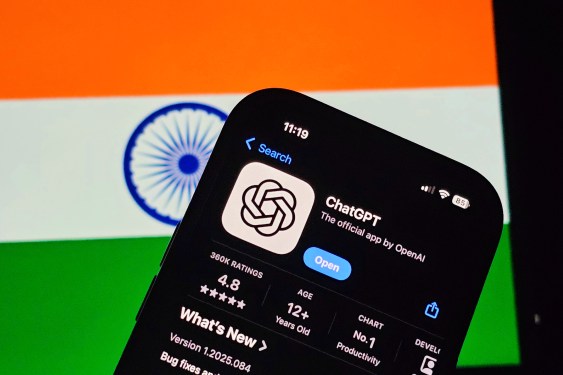India has launched a pilot program enabling consumers to shop and pay directly through AI chatbots. The rollout is led by OpenAI’s ChatGPT, with integrations for Google’s Gemini and Anthropic’s Claude currently in development. This initiative establishes the South Asian nation as the next major market for global artificial intelligence companies.
The National Payments Corporation of India, the federal body operating the country’s widely used Unified Payments Interface, has partnered with OpenAI and the fintech firm Razorpay. This collaboration allows consumers to complete transactions directly within the ChatGPT environment. Razorpay confirmed the nationwide pilot is underway and will become widely available in the coming months.
The new shopping experience is built on two key technologies. The first is UPI Reserve Pay, a protocol that lets users block a specific amount of funds for future transactions with designated merchants. The second is UPI Circle, a solution that handles UPI authentication, enabling payments to be finalized directly within ChatGPT without the need to switch to external apps or websites. Razorpay developed the merchant integration layer that allows businesses to process transactions through AI chatbots.
The initial merchant partners for this pilot are the Tata Group-owned online grocer Bigbasket and the telecom operator Vi. Their participation allows customers to order groceries or purchase mobile recharge plans directly through ChatGPT. The banking layer for these transactions is powered by Axis Bank and Airtel Payments Bank.
India, the world’s most populous nation with over a billion internet subscribers, is already one of the top markets for OpenAI’s ChatGPT. The company has been actively expanding its presence in the country, launching a sub-five dollar ChatGPT Go plan in August to attract more subscribers. This commerce pilot is part of a broader effort to increase user engagement and tap into India’s rapidly growing digital economy.
Razorpay’s co-founder and CEO, Harshil Mathur, described the initiative as more than just a payment experience, calling it a whole new discovery and commerce experience. While UPI is already a massive success in India, processing over twenty billion transactions monthly as the leading digital payments channel, this AI-led approach could drive further adoption by embedding UPI into everyday commerce through chatbot interfaces.
Mathur also confirmed that a proof-of-concept for this new agentic payment experience has been completed with Google’s Gemini and Anthropic’s Claude. These integrations are expected to go live for consumers within a few weeks. Razorpay is in discussions with additional merchants beyond Bigbasket and Vi, anticipating a broader rollout in the next couple of months.
Similar to OpenAI, both Google and Anthropic are experiencing a surge of new users from India. Google already maintains a deep local presence with mass-market products, while OpenAI and Anthropic are taking steps to establish their own footprints in the country and localize their AI offerings for Indian users.
India’s current plan for agentic payments does not involve a specific revenue-sharing model for the partners. However, the move is expected to help AI companies, including OpenAI, achieve greater user retention. Mathur confirmed that under the new setup, AI companies will not have access to payment data, and users will pre-authorize transaction amounts through chatbots using two-factor authentication.
This development follows recent industry moves. Last month, OpenAI introduced an Instant Checkout experience and its Agentic Commerce Protocol, developed with Stripe, to help businesses connect with consumers via AI agents. Similarly, Google launched its Agent Payments Protocol to enable AI agents to conduct transactions on behalf of users.
Industry experts view this as an early concept with significant potential. Its adoption is expected to grow in line with the popularity of shopping agents. In addition to Razorpay, the online merchant payments startup Cashfree Payments has launched its own Agentic Payments MCP. This solution helps merchants enable payments directly through their shopping agents and supports all major payment methods, including cards and UPI. With Cashfree’s system, however, merchants must develop their own shopping agents for integration. The startup demonstrated this capability with a video showing a chatbot enabling users to purchase an iPhone. The company is exploring this technology with a few large enterprise merchants across categories like e-commerce and lending.

